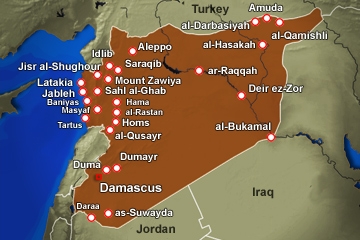
The internationalisation of the Syrian crisis underwent a transformation after the dual Russian-Chinese veto of the resolution based on the Arab League initiative at the United Nation Security Council. In vetoing the resolution, Moscow and Beijing risked confrontation with countries in the Arab world, challenged the will of the Western bloc, and did not share a common position with rising countries, such as India and South Africa, which are fellow members of BRICS – both of which voted in favour of the resolution. It is becoming increasingly more apparent that the dominant international position is moving towards divesting Assad of his legitimacy and pursuing change in Syria through gradual means.
The Syrian crisis reached this point due to the regime’s failure to resolve the crisis internally and the Arab League’s failure to resolve it regionally. These initiatives failed due to the stances of the parties involved in the crisis: the regime still sees itself as wielding enough power not to make any concessions with regards to major issues i.e. keeping Assad and his regime in power.